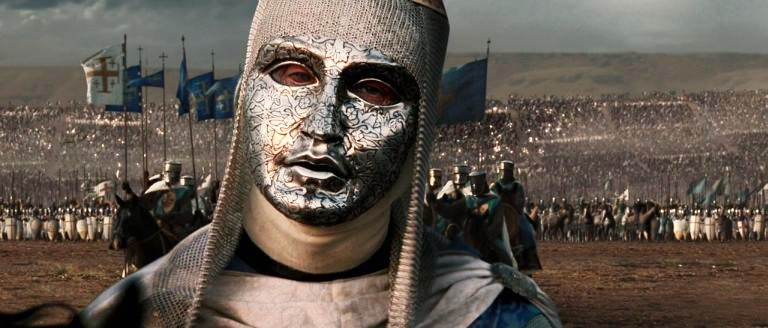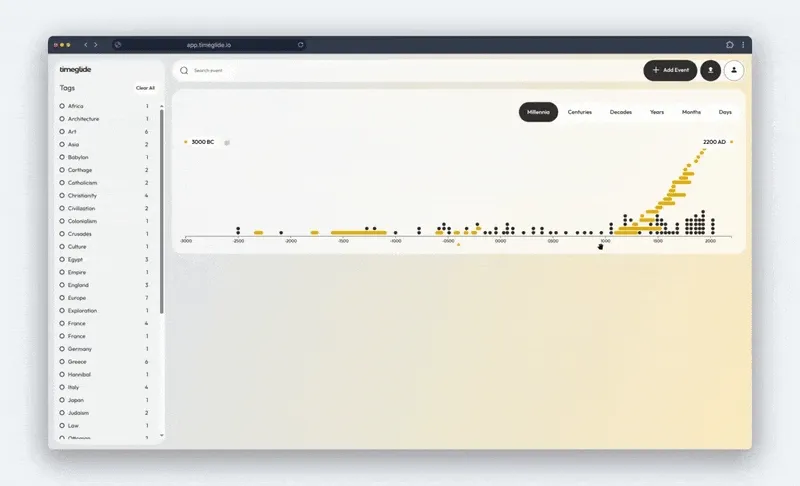
The Christian Crusades: A Concise Guide to Their History and Impact
The Christian Crusades: A Concise Guide to Their History and Impact
I recently watched Kingdom of Heaven, a 2005 Ridley Scott film that many consider an overlooked epic. It follows a young Blacksmith recruited to the Christian Crusades, and aside from being a good watch, it highlighted to me actually how little I knew historically about this topic (apparently there were nine of them(!)). I found myself looking up historical facts and trivia as the film went along, and thought would be a great topic to add to my timeline, and also write a blog post about.
What Were the Christian Crusades?
The Crusades were a series of religious and military campaigns initiated by the Church aimed primarily at protecting / recovering the Holy Land (modern-day Israel and Palestine) from Muslim rule. They were initiated in 1095 and lasted until ~1291. While religion drove the campaigns, political, economic, and social factors also played significant roles.
Why Did the Crusades Happen?
They were initiated in 1095, when Pope Urban II called for the First Crusade at the Council of Clermont (France). The Byzantine Emperor Alexios I Komnenos’ had put out a request for aid to the West to help fend off Seljuk Turk advances and to secure Christian access to holy sites. (As an aside: The Byzantine Empire was the Eastern half of the Roman Empire which survived after the original Roman Empire collapsed in 476AD. It was a continuation of Roman life - governance, culture, and law, centered in Constantinople (modern-day Istanbul)).
The Pope saw it as an opportunity to unite Christendom and assert papal authority. Pilgrims’ reports of restricted access to holy sites like the Church of the Holy Sepulchre further fuelled the call to arms.
Beyond religion, the Crusades offered:
- Economic incentives: Landless knights sought to gain wealth and territory.
- Social mobility: Peasants and lower classes saw a chance for a better life.
- Political power: European rulers aimed to expand influence.
Major Crusades: A Quick Overview
- First Crusade (1096–1099): The only truly successful Crusade for Christians, it led to the capture of Jerusalem and the establishment of Crusader states like the Kingdom of Jerusalem.
- Second Crusade (1147–1149): A failure, as European forces couldn’t recapture lost territories like Edessa.
- Third Crusade (1189–1192): Led by Richard the Lionheart, it secured a truce allowing Christian pilgrims access to Jerusalem but didn’t retake the city.
- Fourth Crusade (1202–1204): Infamously, Crusaders sacked Christian Constantinople(!), weakening the Byzantine Empire. This will be a topic for another blog post but, in short, Western Crusaders came up short in funds to get their armies to Egypt. The Venetians and then a Byzantine Emperors son promised them money and resources to get to Egypt, if they first settled old scores.
- Later Crusades (up to 1291): These were less successful, with few notable benefits and the Crusades ended after the fall of Acre (located in modern day Israel - Bay of Haifa), marking the end of Crusader presence in the Holy Land.
Who Were the Key Players?
The Crusades involved a diverse cast:
- European Christians: Kings, nobles, and knights like Richard the Lionheart (England), Frederick Barbarossa (Holy Roman Empire), and Louis IX (France).
- Muslim Leaders: Saladin, the Ayyubid sultan, became a legendary figure for recapturing Jerusalem in 1187 (Saladin and these battles were featured in the film).
- Byzantine Empire: Caught between East and West, they often clashed with Crusaders.
- Knights Templar and Hospitallers: Religious military orders that played a major role in fighting and governance.
What Were the Impacts of the Crusades?
The Crusades had profound effects, both immediate and long-lasting
- Religious Tensions: They deepened mistrust between Christians, Muslims, and Jews, with lasting repercussions.
- Cultural Exchange: Crusaders brought back knowledge of science, medicine, and architecture from the Islamic world, sparking the Renaissance.
- Economic Growth: Trade routes expanded, benefiting cities like Venice and Genoa.
- Political Shifts: The Crusades weakened feudal structures and strengthened monarchies in Europe.
How I added it to my timeline in TimeGlide
In the end, I decided to add the Crusades as a single duration event to my timeline. In the future I’d like to break it out into smaller duration events as I pull apart the different stories - especially the sacking of Christian Constaniople by Christian forces!😮
